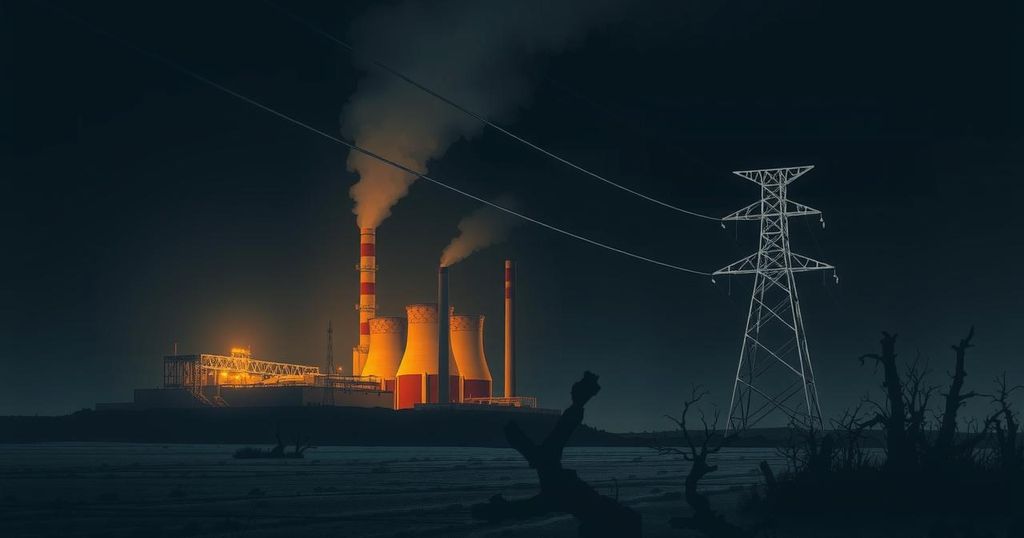Syria’s electricity crisis has led to severe power shortages after the ousting of Bashar Al Assad. The new government aims to increase electricity supply, currently limited to a few hours daily. Years of civil war have devastated infrastructure, and efforts to import fuel face obstacles due to sanctions and lack of international interest. Turkey and Qatar promise assistance, yet doubts remain about long-term solutions.
Syria’s electricity sector faces a daunting challenge following the ousting of former President Bashar Al Assad. The ongoing crisis has led to severe power shortages, with the government providing only two to three hours of electricity daily in most areas. President Ahmed Al Shara’s aim to boost supplies to eight hours may take longer than expected due to the extensive damage inflicted by years of civil war on the country’s energy infrastructure.
The civil conflict has halved Syria’s power generation capacity, which plummeted from 46.4 gigawatt-hours in 2010 to just 20.1 gigawatt-hours in 2022. Much of the country’s electricity is produced by thermal power plants utilizing oil and natural gas. With the frequent power outages, many Syrians depend on diesel generators to meet their energy needs, further straining the already limited diesel supplies.
Turkey and Qatar have pledged to send floating power-supply vessels to alleviate the electricity crisis, but analysts remain doubtful about their effectiveness given the severe damage to generation and transmission facilities. Turkish electricity is currently supplied to parts of northern Syria; however, supply consistency has been an ongoing issue due to previous regional conflicts.
After the change in government, Turkey is interested in enhancing its energy collaboration with Syria. Reports indicate that Turkey could supply electricity and assist in developing Syria’s oil and gas resources. Yet, there are concerns that if economic rationales or geopolitical challenges persist, many proposed initiatives may not materialize.
Despite the potential for improved energy cooperation post-Assad, Syria remains divided, facing clashes between Turkey-backed forces and the US-supported Syrian Democratic Forces (SDF). Control over key oil fields in northeastern Syria hindered the stability required for foreign investment in the devastated oil and gas industry.
The Syrian government is experiencing a severe fuel crisis as it attempts to replace Iranian crude imports, critical for petroleum and diesel production. Efforts to secure new oil imports are complicated by sanctions and hesitations from international traders due to the government’s uncertain payment capabilities.
Due to the reliance on Iranian crude, which averaged 55,000 barrels per day last year, domestic refineries in Homs and Baniyas have struggled to operate effectively without sufficient feedstock. Currently, there is no official agreement between Turkey and Syria regarding crude oil supply, complicating potential energy collaborations.
Syria’s electricity infrastructure has been severely impacted by a prolonged civil war that began in 2011, resulting in significant damage to power generation assets. Economic sanctions have stunted its ability to restore its energy sector and maintain a stable supply of electricity. The recent regime change under President Ahmed Al Shara has stirred hopes for recovery yet presents challenges due to the fragmented political landscape and strained international relations.
In summary, Syria faces a complex electricity crisis compounded by infrastructure damage, international sanctions, and a declining energy sector. The ambition to restore electricity supply relies heavily on international cooperation and investment. However, entrenched geopolitical dynamics and ongoing internal conflicts stand as significant obstacles to achieving energy security and stability in the region.
Original Source: www.thenationalnews.com






